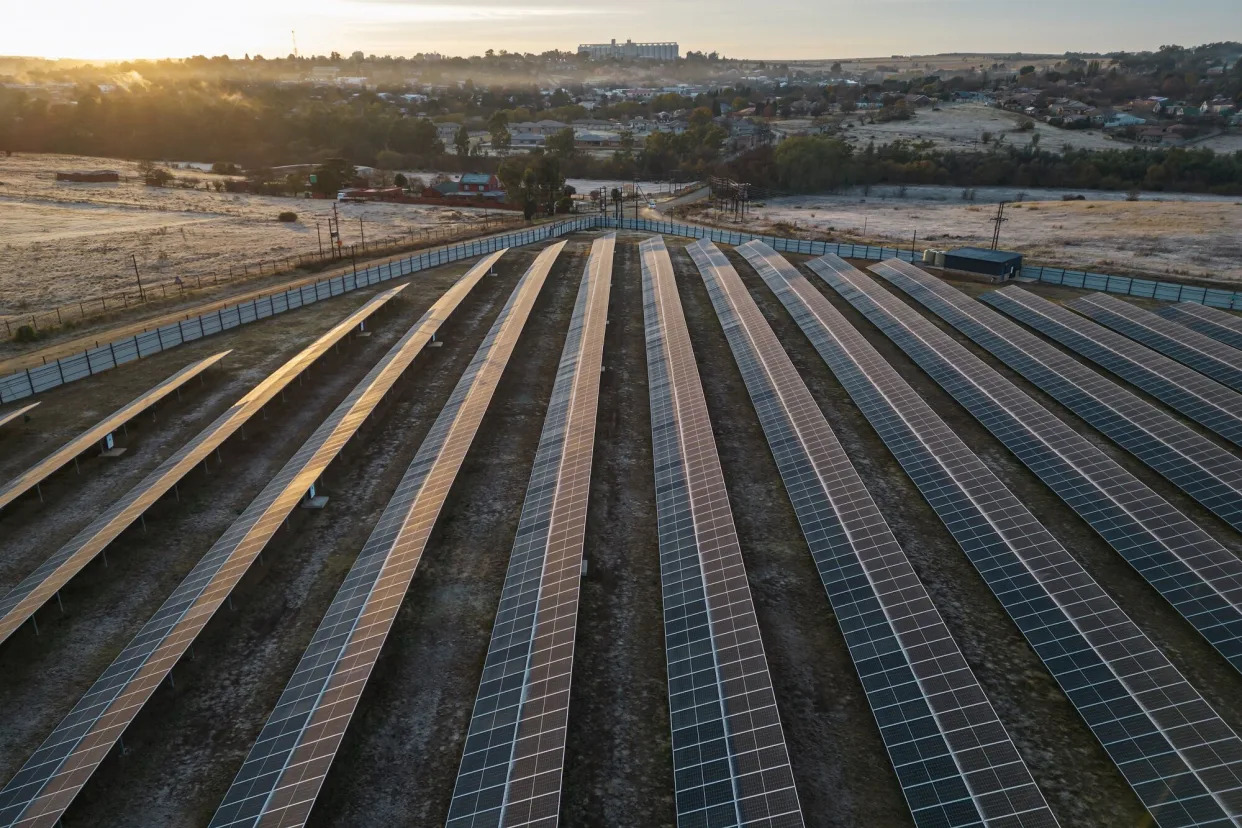Antony Sguazzin
Fri, September 1, 2023

(Bloomberg) -- Africa will seek to present itself as a solution to the global warming crisis in a declaration to be signed by heads of state on Sept. 6 at the inaugural Africa Climate summit in Nairobi.
African leaders, under the auspices of the African Union, committed to tripling the proportion of electricity generated from renewable sources to 60% by 2030 compared with 2019 levels, according to a copy of the draft document seen by Bloomberg.
“Africa’s untapped renewable energy potential, which is 50 times the global anticipated electricity demand by 2040,” the leaders said in the nine-page draft. The continent “can play a significant role in keeping the rise in global temperature within the 1.5C objective,” they said.
While it has abundant solar, wind and hydropower potential and is being touted as a future source of green hydrogen, almost half of Africa’s population, or 600 million people, are without access to electricity. Only 2% of global investment in renewable energy goes to Africa, the leaders said.
The AU won’t comment on the Nairobi Declaration until it’s been discussed and adopted, spokesman Ebba Kalondo said by phone.
Green industries could be built and given that much of the continent is undeveloped, they could leapfrog the use of fossil fuels, according to the document.
“Africa has the fundamentals to become a cost-competitive green industrial hub,” the leaders said. “Africa has a unique opportunity to pursue a much less carbon-intensive development pathway, if matched with timely finance and technology at scale.”
They also emphasized the role Africa’s so-called carbon sinks — forested areas that absorb carbon — play in reining in climate change.
The declaration, to be presented at next week’s gathering in Kenya, will serve as the continent’s formal submission to the COP28 climate summit in the United Arab Emirates in November. It was proposed that the Africa Climate Summit should be held every two years.
While offering to play a role in fighting climate change, the leaders bemoaned the impact emissions caused by developed nations are having on their countries and the lack of finance they are able to access to build renewable energy plants and strengthen infrastructure against extreme weather.
Warming Faster
“Africa is warming faster than the rest of the world and, if unabated, climate change will continue having negative growth impacts on African economies,” they said. “Access to affordable climate finance remains one of the biggest challenges to climate action.”
The declaration states that most assistance is in the form of loans, even though many developing nations battle debt burdens. It criticizes the European Union’s planned Carbon Border Adjustment Mechanism as being unfair because it will make the export of materials to the bloc from Africa powered by electricity generated with fossil fuels less competitive as charges will be imposed.
The leaders called for increased agricultural productivity and the allocation of more of Africa’s land and marine areas to conservation, as well as demanding a greater share of profits from carbon-offset projects.
The world needs to “establish a new financing architecture that is responsive to Africa’s needs including debt restructuring and relief,” they said.
There was little mention in the document of reining in Africa’s own fossil fuel industries. Nigeria and Angola are major oil producers and Senegal and Mozambique are on course to produce significant amounts of natural gas. South Africa relies on coal for more than 80% of its power.
--With assistance from Simon Marks.
Bloomberg Businessweek
No comments:
Post a Comment